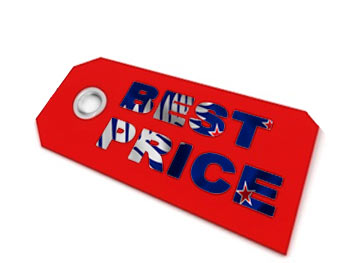Navigating the complex terrain of real estate in New Zealand involves understanding the myriad strategies that can maximize returns, such as Buy and Hold, and Buy and Flip. As we delve into the intricacies of the market, it’s key to grasp the nuances that make real estate in New Zealand a unique investment opportunity. This knowledge serves as the bedrock for anyone looking to capitalize on the potential of real estate within this dynamic landscape. With our focus squarely on the principles that guide property investments, this article aims to be an indispensable resource for both seasoned and aspiring investors. We will meticulously outline what you need to know to make informed decisions, whether you’re planning to buy, hold, or flip properties in this vibrant market.
Trends in the New Zealand Real Estate Market
Overview of Market Dynamics

The real estate market in New Zealand has seen remarkable growth, with the average property value increasing significantly from $600,000 to $922,000 over the last five years 1. This trend is particularly pronounced in major cities such as Auckland, Wellington, and Christchurch, where the demand for residential and commercial properties continues to surge 1. Despite global economic uncertainties, the New Zealand housing market has demonstrated resilience, maintaining steady demand and price growth 2.
Impact of Economic and Policy Changes
Market fluctuations in New Zealand are influenced by various factors including interest rates, population growth, and economic conditions 1. Government policies play a crucial role in shaping the real estate landscape, impacting everything from housing affordability to sustainability initiatives 2. For instance, changes in regulatory frameworks and the introduction of policies aimed at improving housing affordability significantly affect market conditions and investment opportunities 2.
Regional Trends and Investment Opportunities
Understanding regional trends is essential for investors aiming to capitalize on the real estate market in New Zealand. Over the past 30 years, the average house price has consistently increased by 7% annually 2. However, the market has shown signs of segmentation, with some areas like Featherston and Sunshine Bay in Queenstown experiencing divergent trends 4. This segmentation presents varied opportunities for investors, from stable returns in residential properties to potentially higher returns in commercial real estate and innovative developments like co-living spaces 2.
Current Market Conditions and Future Projections

As of 2023, the market has been described as a “year of two halves,” with significant shifts in sales volumes, house prices, and market activity throughout the year 4. The latter half of the year showed signs of recovery, influenced by factors such as changes in credit costs and mortgage availability 4. Looking forward, the real estate market in New Zealand is expected to reach a value of US$0.84 trillion by 2024, with the residential segment dominating the market 6. This growth is anticipated to continue at an annual rate of 3.12% until 2028 6.
Key Takeaways for Investors
For investors, staying informed about the latest market data and trends is crucial. Resources like REINZ, CoreLogic, and PINZ provide valuable insights that can help in making informed investment decisions 2. Additionally, understanding the influence of macroeconomic factors, government policies, and regional market conditions can equip investors with the knowledge to navigate the complexities of the New Zealand real estate market effectively 2.
Buying Property in New Zealand: What to Know
Understanding Financial Requirements and Investment Strategies

Initial Financial Outlay: To begin investing in New Zealand real estate, an initial cash deposit or equity from your existing home is essential. Typically, banks lend up to 65% of the property’s value, necessitating a minimum 35% deposit under the current Loan to Value Ratio (LVR) regulations.
Investment Strategies: The two predominant investment strategies are Buy and Hold, focusing on long-term value and cash flow, and Buy and Flip, which involves renovating properties for quick resale. The Buy and Hold strategy is more common, providing steady income through rental returns and potential long-term capital gains 8.
Legal and Regulatory Considerations
Overseas Investment: Non-resident buyers must obtain approval from the Overseas Investment Office (OIO) before purchasing property in New Zealand 1.
Compliance with Local Laws: Investors must familiarize themselves with local zoning laws, building codes, and tenancy regulations to ensure compliance and avoid legal issues 1.
Financing and Managing Property Investments
Mortgage Options: Various financing options are available through banks and non-bank financial institutions, tailored to different investment scenarios and buyer profiles 1.
Risk Management: Adequate insurance coverage is crucial to protect against potential risks such as property damage, loss of rental income, and liability claims. Additionally, maintaining a ‘rainy day’ fund and attracting reliable tenants can help mitigate financial risks associated with property investment.
Strategic Property Selection

Location Analysis: Choosing the right location is critical for maximizing capital growth and rental yield. Factors such as population growth, employment rates, local economy strength, and proximity to amenities should influence the investment decision 11.
Property Value Enhancement: Improving the condition of the property through renovations can significantly increase its market value and attractiveness to tenants, thereby enhancing rental income and overall return on investment 9.
Market Understanding and Due Diligence
Market Research: Successful property investment requires a deep understanding of market conditions and trends. Tools and data from resources like REINZ and CoreLogic can provide valuable insights 2.
Pre-purchase Assessments: Conducting thorough due diligence, including professional property assessments and obtaining a Land Information Memorandum (LIM) report, is essential to confirm the property’s legal status, structural integrity, and compliance with regulations 1.
By adhering to these guidelines and considerations, investors can navigate the complexities of the New Zealand real estate market more effectively and position themselves for successful property investment endeavors.
Selling Property in New Zealand: Tips and Strategies
Identify Your Target Buyer

Understanding who is most likely to purchase your property plays a crucial role in crafting your selling strategy 12.
Prepare Your Property
Ensure your property is appealing to potential buyers by:
Conducting a deep clean,
Decluttering living spaces,
Maintaining the exterior, including gardens and lawns 12.
Optimize Your Marketing Strategy
Leverage digital marketing and consider professional staging to make your property stand out. Engaging a professional photographer and creating video tours can also attract more buyers 12.
Choose the Right Real Estate Agent

Select an agent who understands the local market and buyer expectations in your specific price bracket to help facilitate a successful sale 12.
Accurate Property Valuation
Determine your property’s market value through:
Online research,
Consultations with property valuers,
Real estate agents’ appraisals 13.
Timing Your Sale
Consider seasonal factors and market conditions to choose the best time to sell your property 13.
Sale and Purchase Strategy
Decide if you will buy a new property before or after selling your current one 13.
Understand Your Property’s Rating Value

Research the Rating Value (RV) and compare it with recent nearby sales to gauge your property’s price point 13.
Enhance Property Value
Consider making minor improvements to increase appeal and value, keeping in mind the cost versus potential return on investment 13.
Presentation Matters
First impressions are crucial, so present your property in its best possible light 13.
Selecting a Sale Method
Choose a method that aligns with your timeframe and goals, and invest in effective marketing to attract potential buyers quickly 13.
Legal Considerations
Consult a lawyer if your property is part of a deceased estate or held in a trust to ensure all legalities are handled properly 13.
Growing Your Portfolio
Expand your real estate investments by:
Starting with properties close to home,
Potentially converting your own home into a rental,
Focusing on building equity 11.
Avoid Common Mistakes
Steer clear of pitfalls such as:
Buying solely based on low price,
Depending only on lender-provided reports,
Opting for interest-only loans for their lower initial cost 11.
Conclusion
Throughout this guide, we’ve explored the dynamic and evolving landscape of real estate investment in New Zealand, delving into key strategies such as Buy and Hold, and Buy and Flip, as well as shedding light on the crucial aspects of buying and selling properties in this vibrant market. The insights provided are designed to arm both novice and experienced investors with the knowledge needed to navigate the complexities of the market, from understanding financial requirements and investment strategies to legal and regulatory considerations that could impact their investment journey.
FAQs
- Is investing in real estate in New Zealand a wise choice?
Investing in real estate is highly regarded in New Zealand and is often seen as a profitable way to build wealth and secure financial stability. Property investment consistently ranks as one of the top investment choices in the region.
- What are the initial steps to begin investing in real estate in New Zealand?
To start investing in real estate, you typically need one of two things: a cash deposit or sufficient equity in your existing home or another property. This equity can serve as your deposit for the new investment. - What is the required deposit for purchasing an investment property in New Zealand?
In New Zealand, banks generally require a 35% deposit to purchase an investment property. This high deposit requirement is due to the loan-to-value restrictions (LVR) set by the Reserve Bank, which limit the amount of lending that retail banks can offer to borrowers with low deposits. - What qualifies as an investment property in New Zealand?
An investment property in New Zealand is defined as a residential property purchased to generate rental income. This property is not for your personal use but is rented out either long-term or for short stays, such as through Airbnb, to produce income.
References
[1] – https://stonewood.co.nz/everything-you-need-to-know-before-investing-in-property-in-nz/
[2] – https://www.cowanbuilding.co.nz/blog/2024/2/14/the-new-zealand-real-estate-market-insights-and-trends
[3] – https://simplywall.st/markets/nz/real-estate
[4] – https://www.corelogic.co.nz/news-research/news/2023/a-turning-point-for-the-nz-housing-market
[5] – https://www.opespartners.co.nz/property-markets
[6] – https://www.statista.com/outlook/fmo/real-estate/new-zealand
[7] – https://www.cbre.co.nz/insights/reports/new-zealand-market-outlook
[8] – https://www.opespartners.co.nz/investment/property-investment
[9] – https://www.trademe.co.nz/c/property/article/guide-to-buying-an-investment-property-in-nz
[10] – https://wise.com/gb/blog/buying-property-in-new-zealand
[11] – https://www.squirrel.co.nz/mortgage-broker/investing-in-property/property-investors-a-to-z
[12] – https://www.agentiq.co.nz/how-to-sell-a-house/
[13] – https://www.settled.govt.nz/selling-a-home/thinking-of-selling/planning-to-sell/
















